children rights
For us, children’s rights are non-negotiable.
We believe that a safe, secure and protective environment is a prerequisite to the realization of all other rights of children and we are committed to provide the same to all children in all the places where we work, and at all times!
Along with the children themselves, we involve the parents, teachers, anganwadi workers, communities, panchayat, block and district administration for a holistic improvement in the lives of the children.
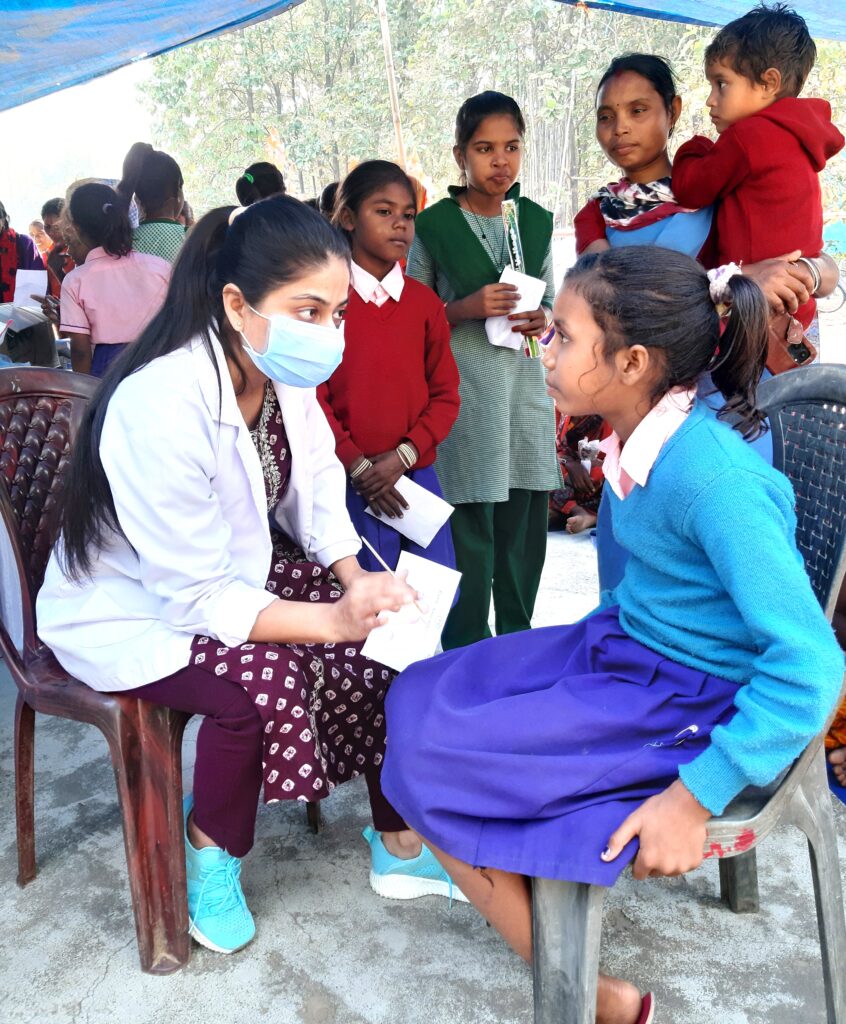
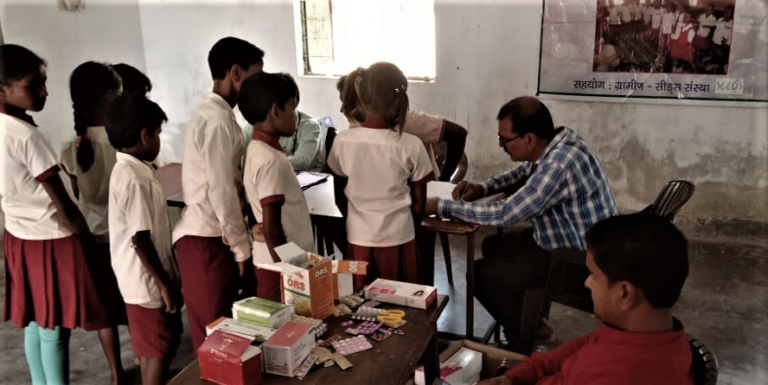
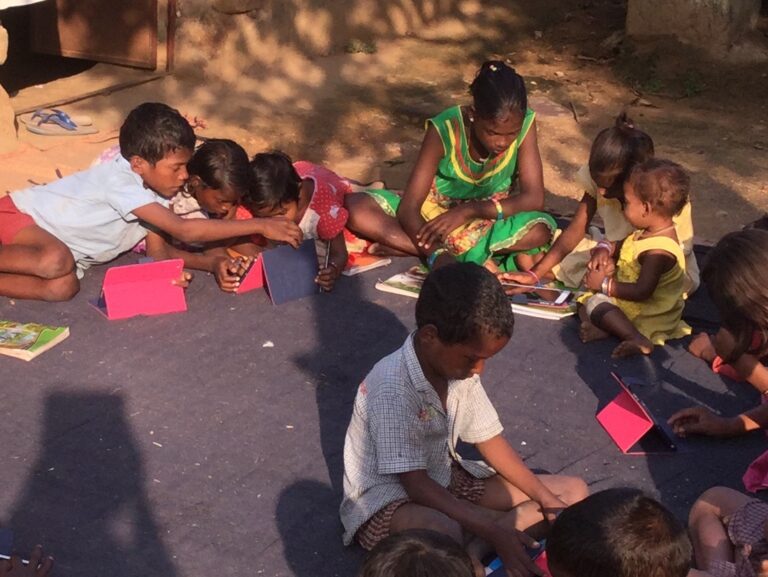

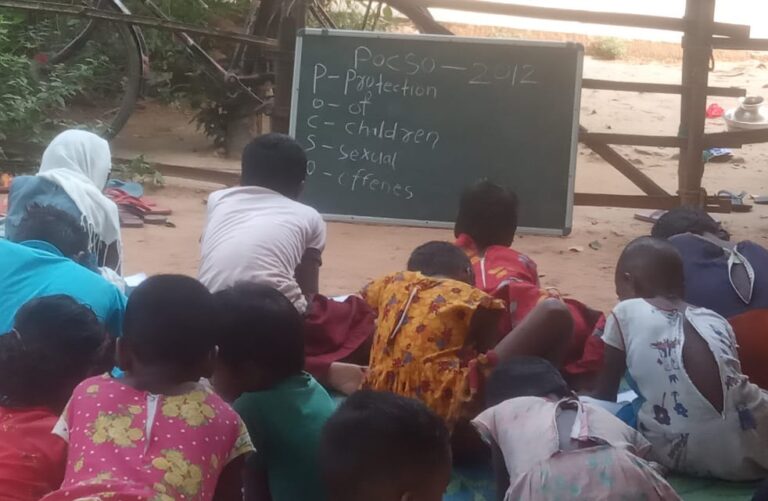
We work in four key programmatic areas:
- Health & Nutrition
The Right to Survival entails that no child should suffer from malnutrition or poor health whatever be their socio-economic background. - Safety & Protection Under Right to Protection, children have the right to be protected wherever they are. Building a safe environment for all children, till the age of 18 years, is critical to protect them from abuse and exploitation.
- Education
In the context of the Right to Development, free and compulsory education is the right of every child. - Child Participation
The Right to Participation envisages that children have a right to be heard and their opinions respected and considered by adults around them.
Heartening Impact of SEEDS Learning Circles in Backward Areas
In a historic first for this remote region, 17 children from tribal communities passed entrance exams for premier schools—Navodaya Jawahar Vidya Mandir, Netarhat, Eklavya, and Model Schools.
Villagers in roadless, extremist-affected Gobraduma rejoiced as three Class V girls earned spots at Navodaya Vidyalaya—without coaching or tuition, rare in these forests. These young leaders also run savings groups and advocate child rights at home.
SEEDS’ Commitment Since 2020
We support child rights across 16 tribal villages and 18 hamlets in Gurabandha & Dumaria blocks through Adolescent Learning Centres. Village tutors deliver essential lessons in subjects, rights, and life skills—preventing dropouts and building bright futures post-Covid.
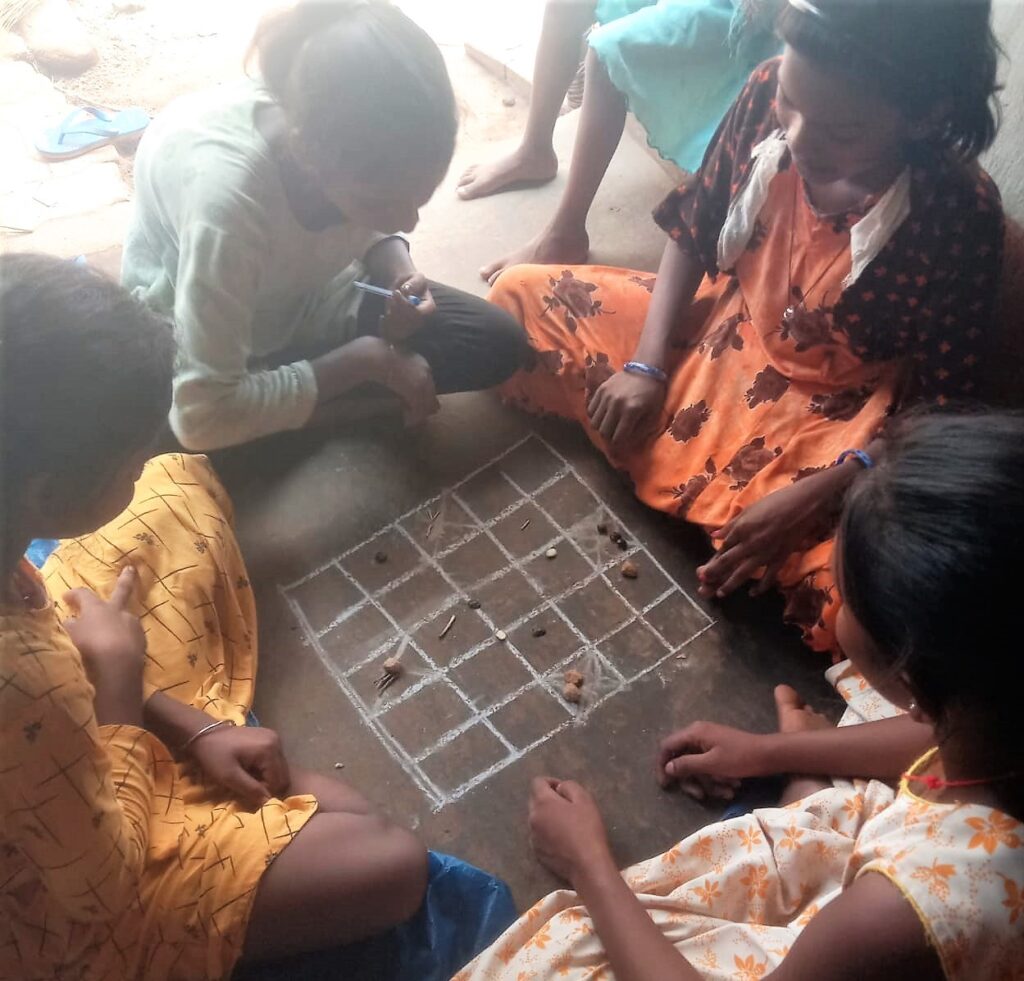
Traditional games & sports
Sports-integration is a cross-curricular pedagogical approach that utilizes physical activities including indigenous sports, that helps in developing skills such as collaboration, self-initiative, self-discipline, teamwork, responsibility etc.
14 types of traditional games and sports have been organized, such as Asta-chakra, kitkit, Bagchal, Pittu, Ekir Mikir, pataluka, sui Topa, Anda chori, Talachabi, Ankh Michouni, Handiphor Kabaddi etc. The skills, learning and values of each game are highlighted. 967 Children participated in the games.
Parents and the elderly are very happy to see the revival of traditional games. In many places they are seen guiding the children and reminiscing their childhood days.
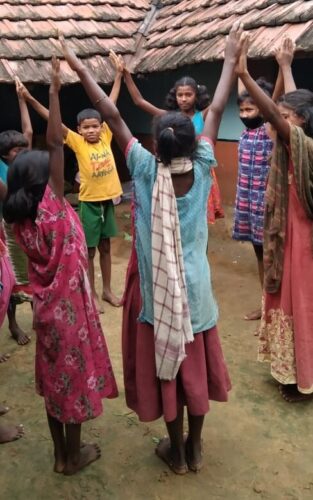
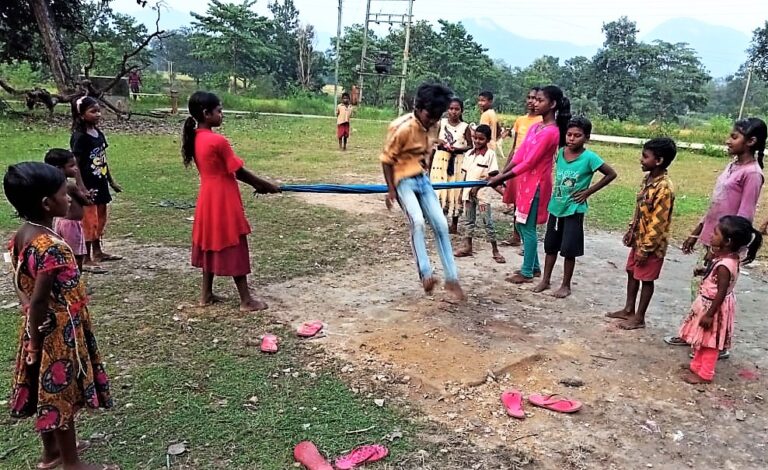
Children Motivate Drop out Classmates to Rejoin School
As part of the children’s circles annual plan, 39 school drop-out children (including 29 boys and 10 girls) were brought back to schools in nine villages of Gurabandha and Dumaria Blocks. Most of the girls had left school due to domestic work. The boys had left school largely as a consequence of lagging behind in their studies and taking up petty jobs to supplement their family income. Their school counterparts convinced the drop out children as well as their parents about the importance of education. They also assured them of possible help in their studies.
This year marks a proud milestone: 55 children from 10 project villages finished secondary school, with 30 girls among them, a remarkable feat in these tribal communities.
Of these, 25 earned First Division (>60% marks), including 19 girls, and all have enrolled in junior college.
Celebrated on Children’s Day, they now inspire younger peers to dream big.
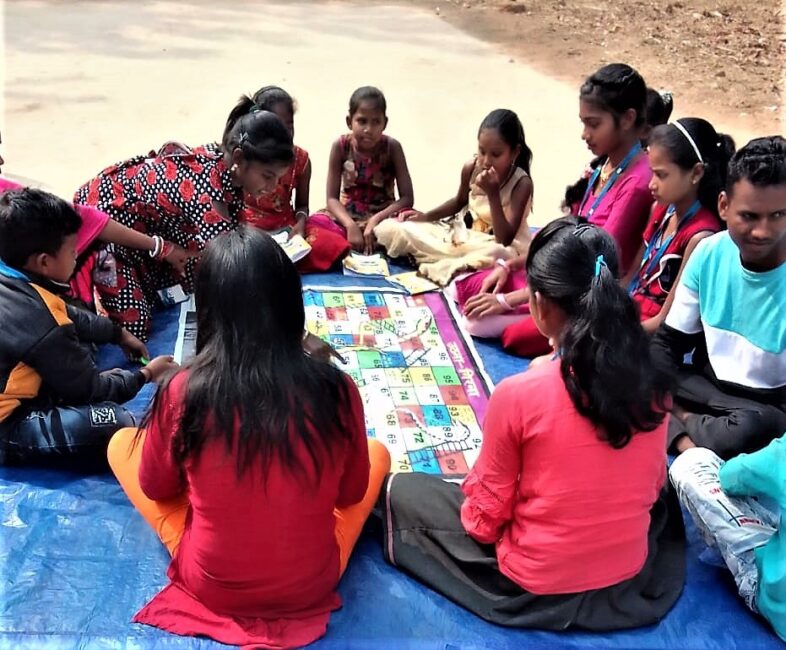
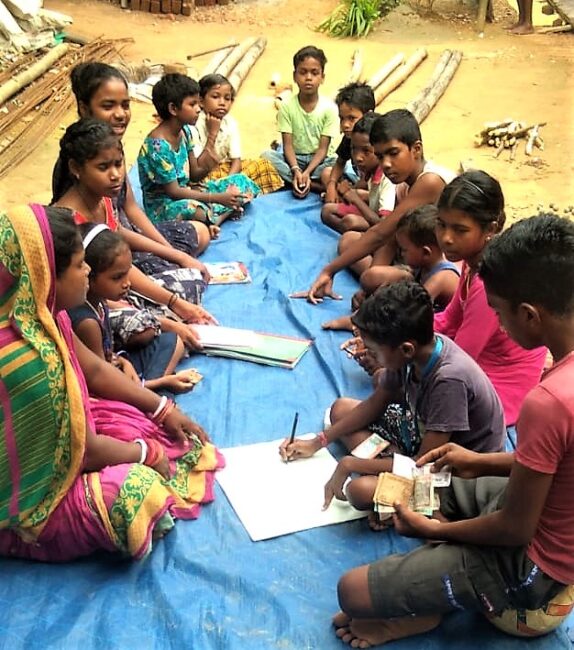
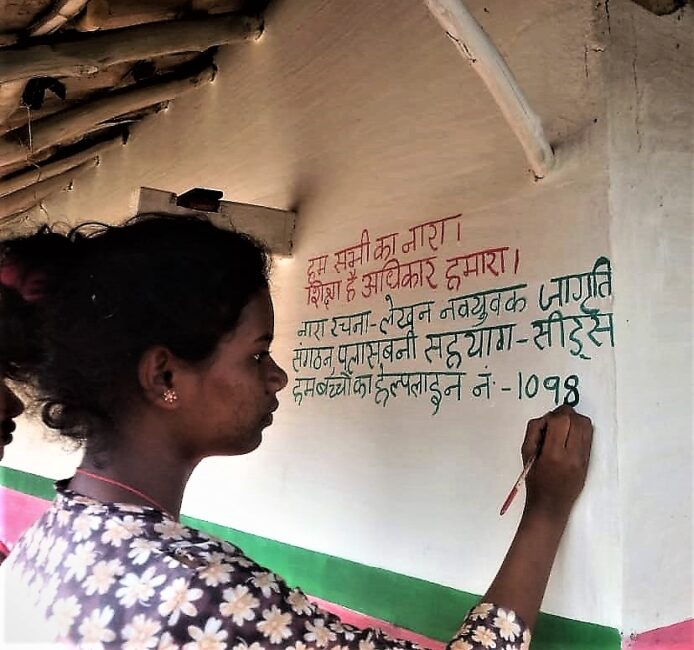

Children are potential change agents and given the space and opportunity, can hold dialogue on matters related to themselves.
Each of them should be able to speak out and/or act on the issues that affect them. It not only helps in their mental and emotional development but also fosters in them self-esteem and self-belief.
The 32 children’s circles functioning in the conflict ridden area, provide a platform for meeting and sharing issues of mutual interest. They meet twice every week.
LEARNING cum COMMUNITY CENTRE
AMIDST DENSE SARANDA FORESTS
Nestled in Asia’s largest sal forest (820 sq km), remote Sankura leaves Ho tribal families cut off from roads, schools, and opportunity—surviving solely on forests and seasonal paddy. SEEDS witnessed their simple lives overshadowed by deep poverty and a heartfelt desire for their children’s brighter future. Thanks to compassionate supporters, we launched the hamlet’s first open-air non-formal education unit, led by a local seventh-pass youth. Villagers beamed with pride—education’s light now shines in their untouched world.
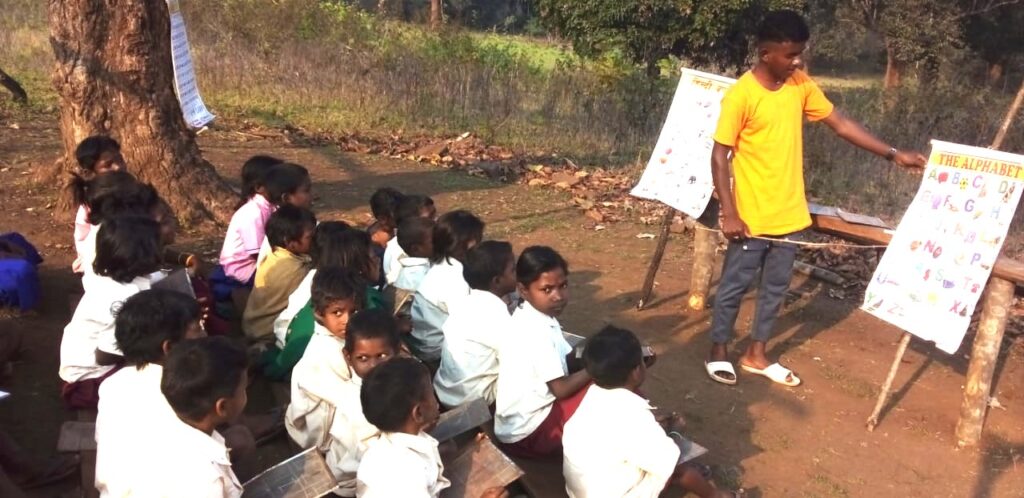
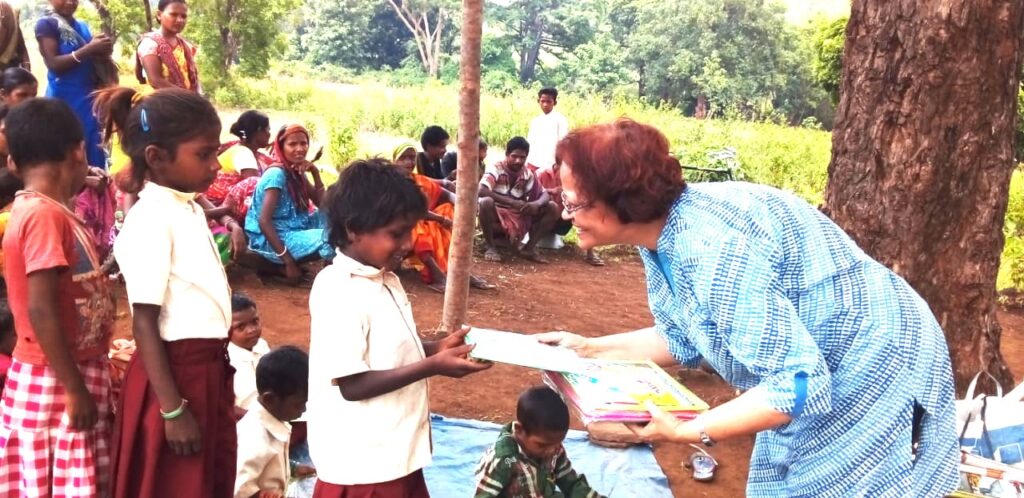
Encouraged by the development initiatives, the villagers expressed their concern over the absence of a covered space for education or for community meetings which posed as deterrent particularly during the monsoon months. The physical and financial plans were discussed with the community and with a substantial contribution of labour, work started. There were many challenges, right from clearing the land from overgrown bushes, digging and transporting stones to the site, to getting masons and carpenters to extremist activities and combing operations by paramilitary forces in the area. However the construction work has been completed. Sankura and its people are brimming with hopes of a brighter future.
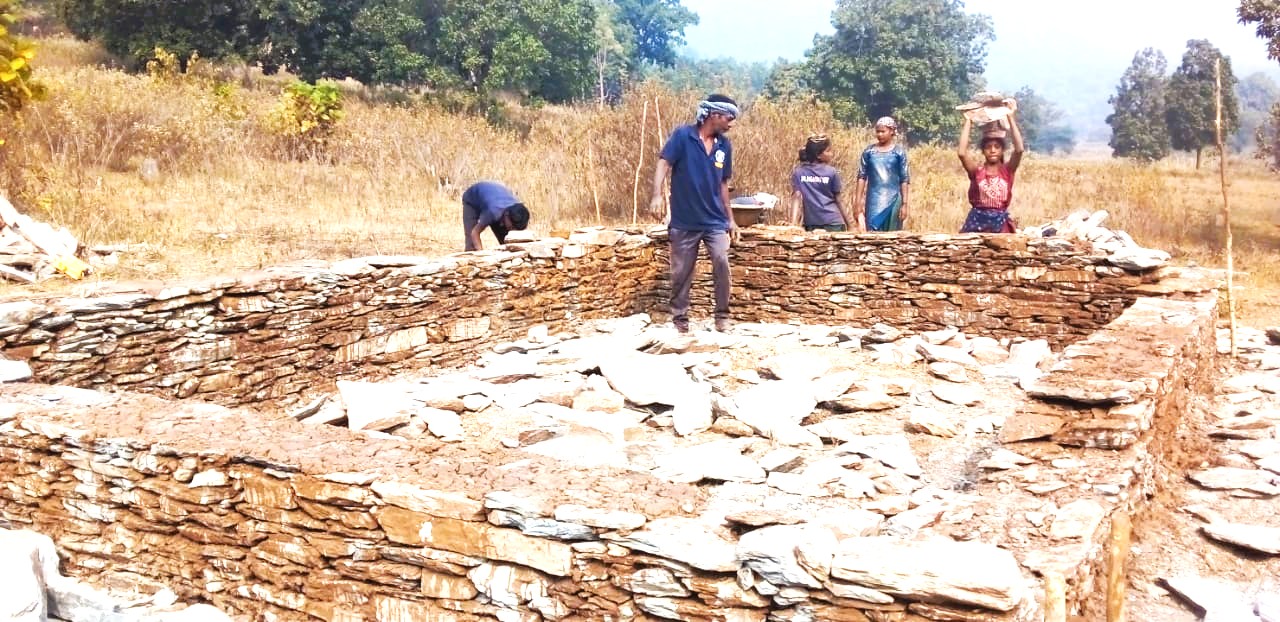
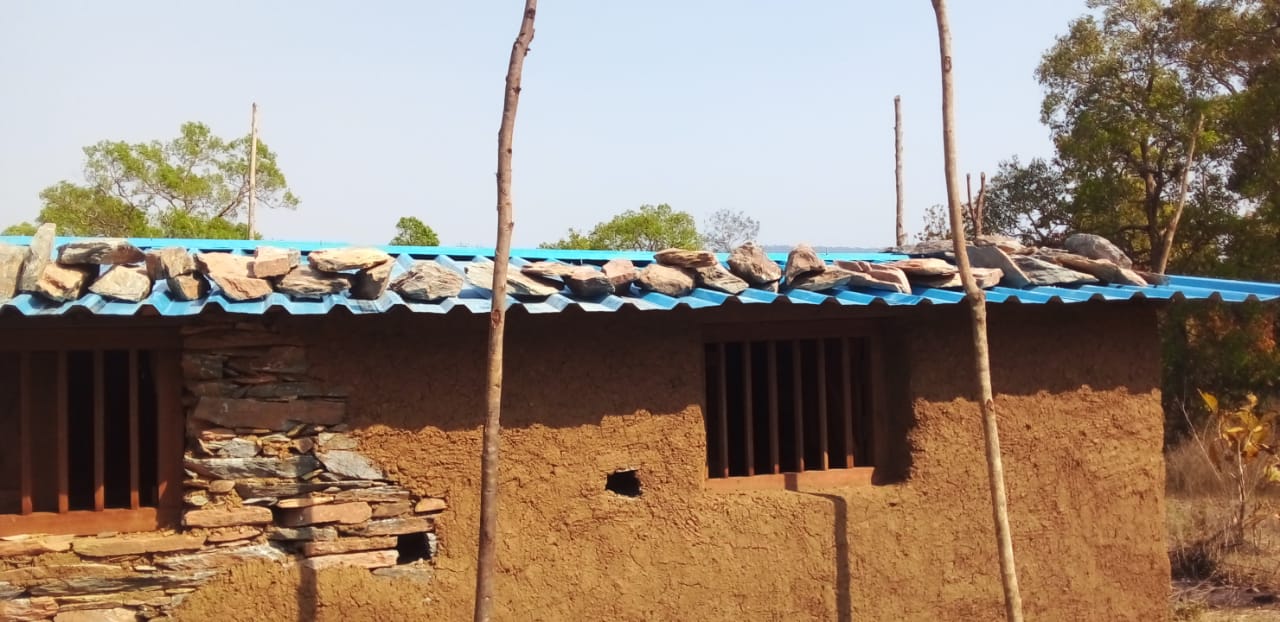
A children's mock court being conducted as part of Rights awareness.
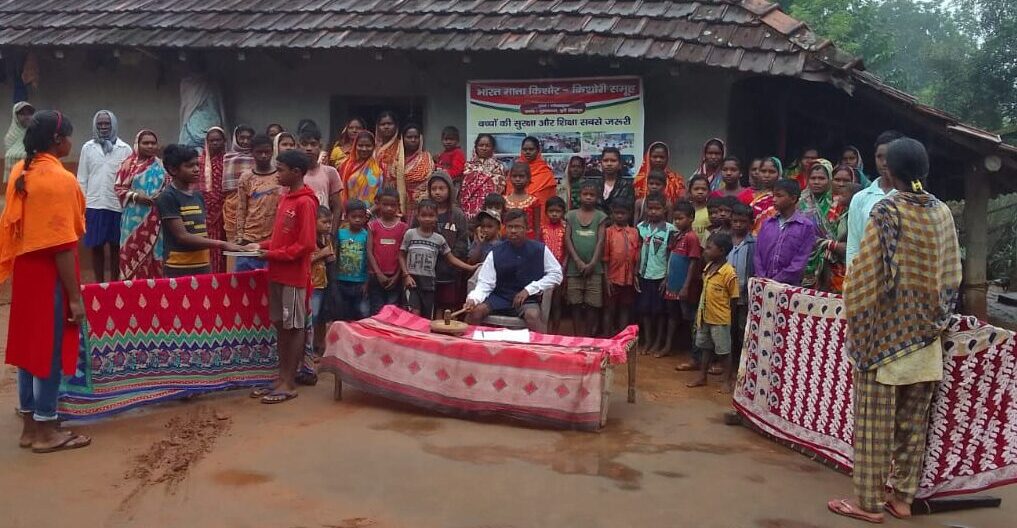
WALK WITH US
At SEEDS, no contribution is small. Become harbingers of change by affirmative action.
